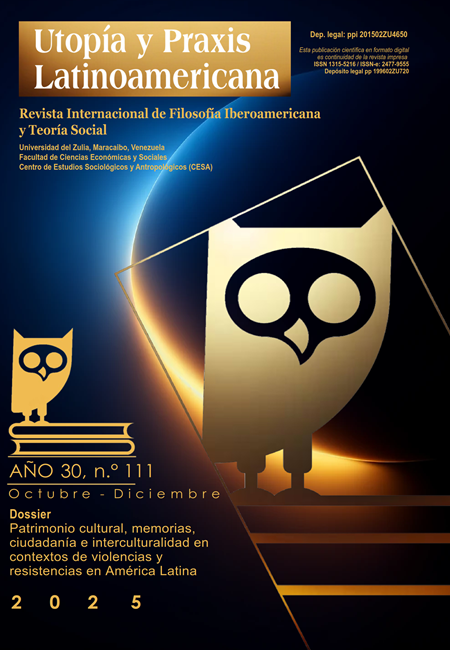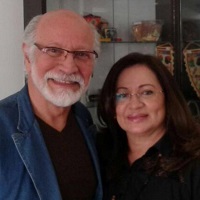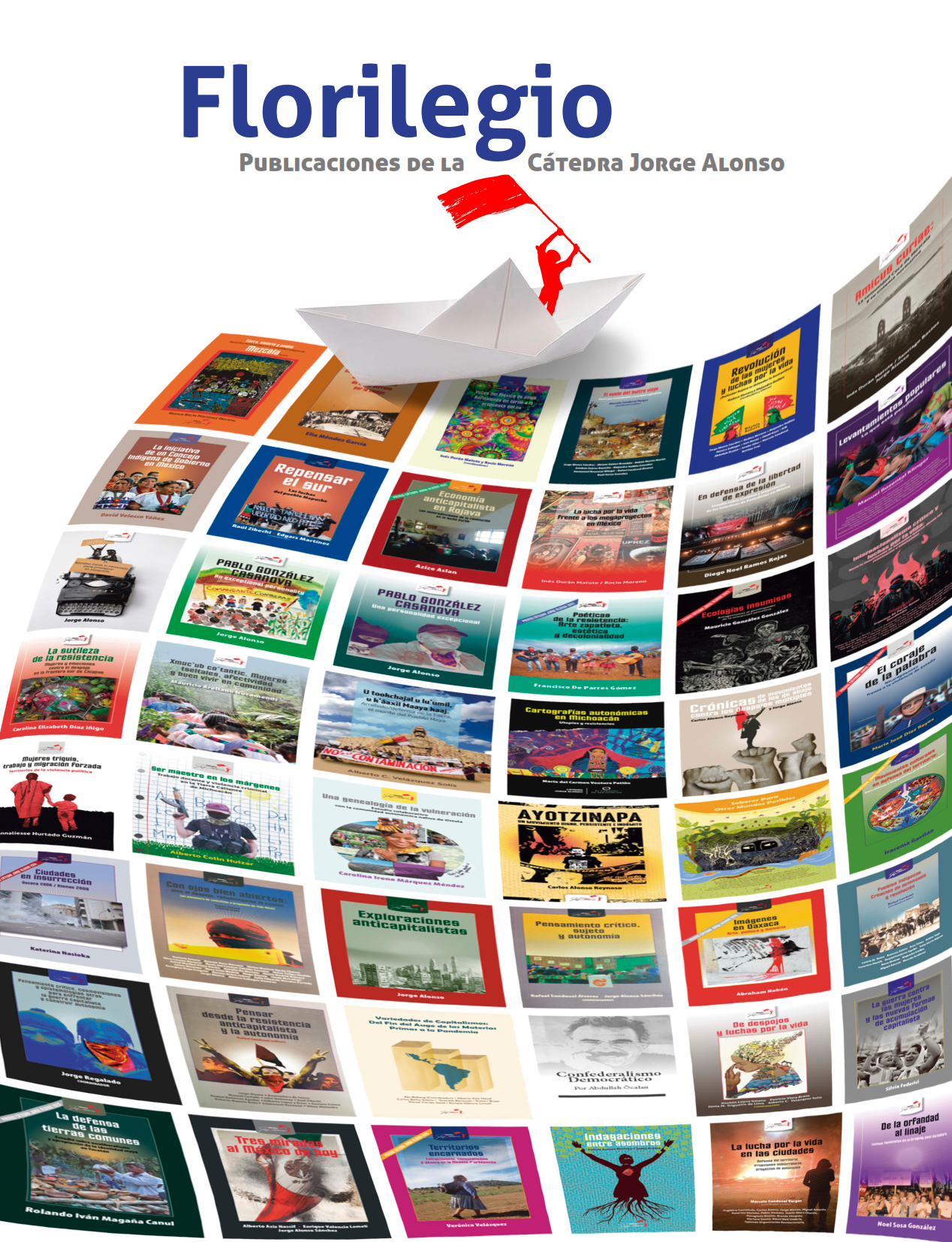Ecos de la memoria: genealogías teóricas desde América Latina
Resumen
El propósito de este trabajo es describir algunas de las líneas de investigación en el campo de los estudios sobre la memoria, estableciendo algunas rutas sobre sus posibles profundizaciones. Para lo cual, se muestra un panorama de las arquitecturas teóricas existentes, provenientes de Europa en América Latina, para luego desplegar los intereses temáticos de los años 80´s al 2023 y, finalmente, exponer algunas obras recientes que vinculan la literatura con la memoria, ausentes en el campo latinoamericano debido a su falta de traducción al español. Es decir, se propone un recorrido de las transformaciones que han configurado el campo de la memoria en América Latina para reflexionar cómo han evolucionado los estudios por la recuperación del recuerdo en el campo académico en dos sentidos: 1) la producción teórica y 2) los intereses de investigación temáticos. Se sostiene que los estudios de la remembranza se han centrado en la experiencia de los regímenes políticos autoritarios (dictaduras), excluyendo las investigaciones realizadas en el campo de la literatura.
Citas
GAMIÑO, R. (2020). Los orígenes de la “verdad histórica”. Los primeros informes sobre la desaparición forzada de personas en México. Relaciones. Estudios de historia y sociedad, 41(161), 1-25. Epub 19 de noviembre de 2020.https://doi.org/10.24901/rehs.v40i161.662
HIRSH, M. (1997). Family Frames: Photography, Narrative, and Postmemory. Harvard University Press, Cambridge, Mass.
HIRSH, M. (2012). The Generation of Postmemory: Writing and Visual Culture After the Holocaust. Columbia University Press.
https://doi.org/10.36677/hmigracion.v4i7.11945.
HUYSSEN, A. (1986). After the Great Divide: Modernism, Mass Culture, Postmodernism. Indiana, University Press.
Informe de la Comisión de la Verdad y Reconciliación en el Perú. 2003. Recuperado en: https://www.corteidh.or.cr/tablas/r08047-26.pdf.
Informe sobre el proceso de Memoria, Verdad y Justicia en Argentina. 2017. Recuperado en: https://www.cels.org.ar/web/wp-content/uploads/2017/05/Informe-proceso-de-MVJ-2017.pdf
JELIN. E. (2002). Los trabajos de la memoria, Ediciones Siglo XXI, Buenos Aires.
KOHUT, K. (2009). Literatura y memoria. Reflexiones sobre el caso latinoamericano. Revista del CESLA, no. 12: 25-40. https://www.revistadelcesla.com/index.php/revistadelcesla/article/view/169/165.
LAZZARA, M. (2021). El giro de la memoria en América Latina: Trayectorias, desafíos, futuros. CLACSO. Recuperado en: https://www.jstor.org/stable/j.ctv2v88dft.5
NORA, P. (1984). «De la République 8. la Nation», Les lieux de mémoire, t. 1, La République, Gallimard, París.
NORA, P. (1984). Entre Mémoire et Histoire>, Les lieux de mémoire, t. I, La République, Gallimard, París.
NORA, P. (1986). "Les Mémoires d'État:», Les lleux de mémoire, t. 11, La Nation, vol. 2, Gallimard, París.
NORA, P. (1986). (La nación) Introducción sin título a «Territoires», Les lfeux de mémoire. t. 11, La Nation, vol. 2, Gallimard, París.
NORA, P. (1986). «La nation-mémoire>, Les lieux de mémoire, t. 11, La Nation, vol. 3, Gallimard, París.
NORA, P. (1992).
NORA, P. (2008). Les Lieux de Mémoire. Ediciones TRILCE, traducción de Laura Massello, José Rilla (compilador), Uruguay.
NORA. P. (1992). «Gaullistes et communistes», Les lieux de mémoire, t. III, Les France, vol. l, Gallimard, París.
NORA. P. (1992). «L'€:re de la commémoration», Les lieux de mémoire, t. III, Les France, vol. 3, Gallimard, París.
PULIDO, B. (S/A). Memoria, Historia y Narración en la Literatura Latinoamericana (Seminario). México. CIALC. Universidad Nacional Autónoma de México (UNAM). Recuperado de: https://efaidnbmnnnibpcajpcglclefindmkaj/https://latinoamericanos.posgrado.unam.mx/plandeestudios/archivos/ProgramasCursos/2016-1/SeminariosOptativosMonograficos/C.5.Begona/SEMINARIO%20Memoria.%20Latinoamericanos.%20Pulido.pdf. Fuente consultada el 15 de febrero del 2025.
RICOEUR, P. (2000). La mémoire, l’histoire, l’oubli, París: Seuil.
ROVIRA, C. (2024). La ultraderecha en América Latina Particularidades locales y conexiones globales. Nueva Sociedad No 312, julio-agosto de 2024, ISSN: 0251-3552,
RUIZ, J. (2019). Fosas clandestinas y su relación con crímenes de lesa humanidad. Propuesta metodológica para la documentación de casos que determinen responsabilidad penal internacional en México. Historia y grafía, (52), 97-128. Recuperado en 14 de mayo de 2025, de http://www.scielo.org.mx/scielo.php?script=sci_arttext&pid=S1405-09272019000100097&lng=es&tlng=es.
SABAN, K. (2020). De la memoria cultural a la transculturación de la memoria: un recorrido teórico. Revista chilena de literatura, (101), 379-404. https://dx.doi.org/10.4067/S0718-22952020000100379.
SÁNCHEZ, S., Y ORDAZ, C. (Coords). (2022). Panorama de la licenciatura en Lengua y Literaturas Modernas (alemanas). México. Samsara Editorial.
SARLO, B. (2006). Cultura de la memoria y giro subjetivo. Una discusión. Siglo XXI Editores, Argentina.
SEYDEL, U. (2020). Memoria cultural y culturas de rememoración en América Latina. México. Bonilla Artigas Editores. Universidad Nacional Autónoma de México (UNAM).
TARROW, S. (1997). El poder en movimiento. Los movimientos sociales, la acción colectiva y la política. Alianza Editorial. Madrid, España.
VELASCO, D. (2017). Ayotzinapa. La incansable lucha por la verdad, la justicia y la vida. Espiral (Guadalajara), 24(70), 265-271. Recuperado en 14 de mayo de 2025, de http://www.scielo.org.mx/scielo.php?script=sci_arttext&pid=S1665-05652017000300265&lng=es&tlng=es.









